#civil war in a nutshell
Text
There are sheltered conservatives and then there are party conservatives. And those are two completely different types of people.
1 note
·
View note
Text
BAE - bucky above everything
#plot of captain america civil war in a nutshell#bucky barnes#lmao#ignore this i am exceptionally slow today
1 note
·
View note
Text

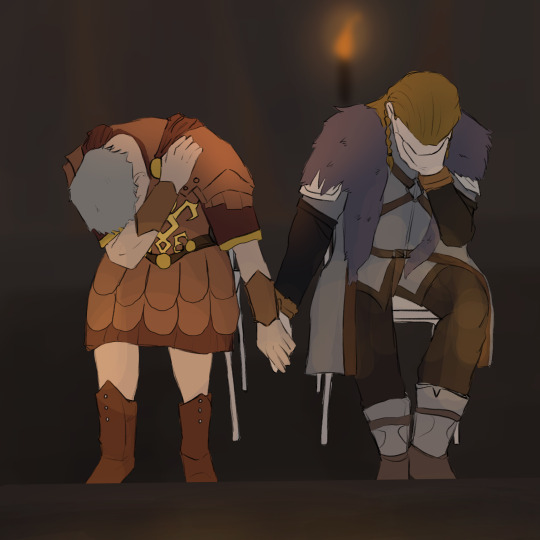
Skyrim civil war in nutshell
#elder scrolls#skyrim#ulfric stormcloak#skyrim civil war#april fools#elder scrolls fanart#elder scrolls memes#general tullius#stormcloak rebellion#imperial#skyrim memes#war never changes#I didn’t know what background I wanted on the second pic
863 notes
·
View notes
Note
how is nightcloud characterized in BB? (does she slay…)
She DOES slay. My girlie...
In a nutshell, I'm actually super fascinated by this little family. I don't like how Nightcloud is part of the Civil War on the side of Mudclaw, but that NEVER comes up and never contributes to anything.
SO Nightcloud is kinda this sad case where she's REALLY trying to be better. She only feels guilty for joining the Rebellion in the sense that it caused a ton of destruction and got her Clanmates hurt... but Mudclaw and his rebels were terrible.
She WANTS to take away some kind of lesson, not be like him. Their anger towards people like Brushblaze was exploited and the fight was so brutal and unnecessary... but also, she doesn't really GET it. She still really dislikes outsiders. She feels a discomfort in her belly thinking about WindClan's purity being threatened.
Unfortunately, being in a toxic relationship with Crowfeather made this worse. When he wants to hurt her, he compares her to "Feathertail."
Both a RiverClan cat, and this perfect mate that she can never seem to be. It hits every weak point, and makes her boil with anger and insecurity.
Unfortunately, this gets worse with time. BB!Breeze will actually be taking away some xenophobic sentiment from her specifically.
But as a mom? Nightcloud is one of the best. She LOVES her kid.
It started with her own Mi, Hillrunner. She never wanted to be like Hillrunner.
Her and her sibling, Tawnyfur, were some of the first kits born in the WindClan camp after its return from exile. Their mother was Downwind.
Crookedstar and Nightstar combined forces, trying to drive them out a second time. ThunderClan came to save them, AGAIN
But it was too late to save Downwind.
Nightkit was too young to remember it, but Hillrunner ALWAYS stressed that she travelled so, so far with her twin, only to be forced to bury her when they came home.
Hill and Down are identical twins. Hillrunner just had a scratch on her nose.
Not that it excuses anything, but Hillrunner... she was SUPER traumatized by the WindClan Massacre, the exile, her sister's death, and then everything that followed.
She was TERRIFIED of outsiders, to the point of fury. Tawny and Night were equally afraid of her, and loved her. Hillrunner's short fuse was absolutely unpredictable and often ended up being taken out on the kits.
And... that's something Nightcloud desperately wants to avoid being. She remembers how scared she was just to make noise at night if she wanted to shift around in the nest.
Tawnyfur was a young warrior when they died in the BloodClan battle. Hillrunner had also passed on by that point-- probably in a skirmish with TigerClan.
And suddenly, Nightcloud was alone.
She's also one of the strongest fighters in WindClan. Her and Willowclaw are two of the heaviest hitters in my mind for some reason.
In terms of personality though, in a PLOT TWIST, I actually plan to write Nightcloud as a bit sweeter than she is in canon. She gets FURIOUS when she's pushed, but is one of the more generally polite cats in WindClan. Especially in early Po3 when she really is trying to atone for her part in the rebellion.
I just think she's neat.
#I also give her a vibe like... a very tired opera singer#Who married a famous but toxic author#She's huge and fluffy and gorgeous. But so so tired.#And Crow is kind of lanky and snappy looking#Better bones au
155 notes
·
View notes
Text
Act 4 in a nutshell
Akatsuki: Hey, now that you’ve survived the first 2 acts, why don’t we go on a trip? You’ve always wanted to see a civil war, right? Or, we could go to a place where if you sneeze at the wrong time, you’ll get executed. Also, there’s the theocracy where a living god can order you to cut your own head off and then charge you a fee for the favor of listening to him. Your choice!
50 notes
·
View notes
Text
THIS DAY IN GAY HISTORY
based on: The White Crane Institute's 'Gay Wisdom', Gay Birthdays, Gay For Today, Famous GLBT, glbt-Gay Encylopedia, Today in Gay History, Wikipedia, and more … April 23
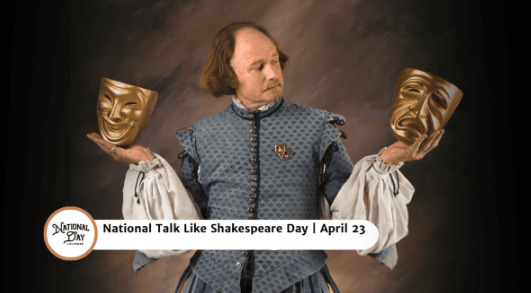


1616 – On this date the English writer and actor William Shakespeare died. He was born in 1564 and baptised on the 26 April, probably within 2 or 3 days of his birthdate. (One legend is that he died on the day that he was born - which would make his birthdate also today, 23 April)
Shakespeare is the most important playwright and poet in the English or any other language, but Shakespeare's sonnets are cited as evidence of his possible homosexuality.
The poems were initially published, perhaps without his approval, in 1609. One hundred and twenty-six of them appear to be love poems addressed to a beautiful young man whom he addresses as 'Fair Lord' or 'Fair Youth'; this is often assumed to be the same person as the 'Mr W.H.' to whom the sonnets are dedicated. The identity of this figure (if he is indeed based on a real person) is unclear; the most popular candidates are Shakespeare's patrons, Henry Wriothesley, 3rd Earl of Southampton and William Herbert, 3rd Earl of Pembroke, both of whom were considered handsome in their youth.
It remains unclear whether the Fair Lord and Fair Youth addressed represent real individuals, or even whether the authorial "I" who addresses them represents Shakespeare himself, though Wordsworth believed that with the sonnets "Shakespeare unlocked his heart".
Even though he married Anne Hathaway and had three children, the circumstantial evidence, such as in his sonnets and plays, suggests he did have an erotic interest in men. Evidence of these homosexual tendencies comes from an analysis of his sonnets, which address his "great love," who seems be a young man.

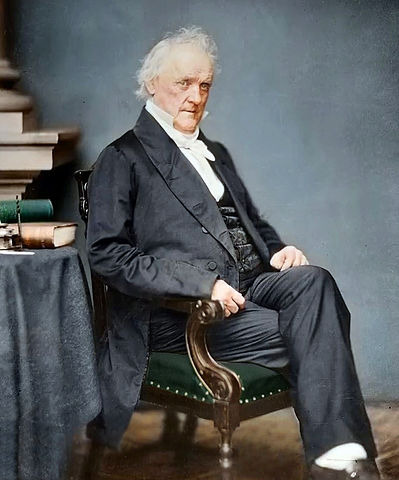
1791 – Today's the birthday of James Buchanan (d.1868), the 15th President of the United States and the nation's only bachelor chief executive, unanimously considered worst president in U.S. history.
For fifteen years in Washington, D.C., prior to his presidency, Buchanan lived with his "close friend," Alabama Senator William Rufus King. King became Vice President under Franklin Pierce. He took ill and died shortly after Pierce's inauguration, and four years before Buchanan became President. Buchanan and King's close relationship prompted the surly Andrew Jackson to refer to King as "Miss Nancy" and "Aunt Fancy," while Aaron V. Brown spoke of the two as "Buchanan and his wife." Further, some of the contemporary press also speculated about Buchanan and King's relationship.
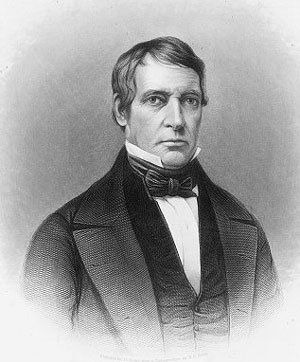
William Rufus King
Buchanan's and King's nieces destroyed their uncles' correspondence, leaving some questions as to what relationship the two men had, but the length and intimacy of surviving letters illustrate "the affection of a special friendship", and Buchanan wrote of his "communion" with his housemate . The circumstances surrounding Buchanan and King's close emotional ties have led most open historians to speculate that he was America's first homosexual president.
Perry Brass wrote us to tell us that in "several cities, most notably Washington, DC, 'James Buchanan Clubs' popped up, joined by wealthy bachelors. The clubs purported to be a place where bachelor men could 'network,' before that word became a verb, but the actual basis of the club was pretty well known: they were clubs for (somewhat) closeted A-gays. Another version of the clubs were called 'Steamboat clubs,' and I'm not sure where that word came from, although I think it had some connection with the Buchanan era as well."
Why was he such a bad president? Well, in a nutshell, most historians consider him responsible for letting the country fall apart into the Civil War. He acquiesced to Southern states (even though he himself was a Pennsylvanian). Buchanan's efforts to maintain peace between the North and the South alienated both sides. As the Southern states declared their secession in the prologue to the American Civil War, Buchanan's opinion was that secession was illegal, but that going to war to stop it was also illegal; hence he remained inactive.
By the time he left office, popular opinion had turned against him and the Democratic Party had split in two. His handling of the crisis preceding the Civil War has led to his consistent ranking by historians as one of the worst Presidents in American history.
If you visit Washington, DC, you can see the lovingly restored cottage of Buchanan's successor (and perhaps the second homosexual President) Abraham Lincoln. Located at the Old Soldiers Home near Rock Creek Park, the cottage underwent a complete renovation to return it to period authenticity as the summer home of the Lincolns during the civil war. What does this have to do with Buchanan? Well, if you stand in the front yard of the Lincoln cottage, across the way you'll see the beautiful cottage that was the summer home to Buchanan and King on those hot steamy Washington summers of long ago.

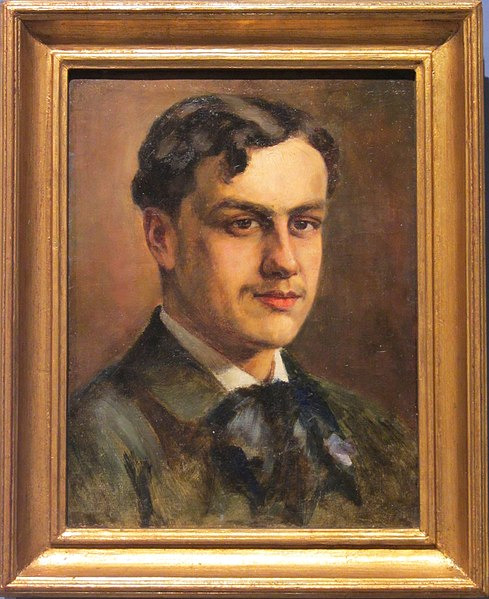
1882 – The Chilean novelist Augusto Goemine Thomson better known as Augusto D'Halmar was born on this date. He is best known as the author of the novel "Pasión y muerte del Cura Deusto" which was published in 1924. It was one of the first novels to deal with homosexuality in an open way. In 1942 D'Halmar was awarded the Premio Nacional de Literatura. He was the first recipient of the honor.


1918 – James Kirkup (d.2009) was a prolific English poet, translator and travel writer. He wrote over 30 books, including autobiographies, novels and plays. He became a Fellow of the Royal Society of Literature in 1962.During World War II he was a conscientious objector, and worked for the Forestry Commission and on the land in the Yorkshire Dales.He taught at The Downs School in Colwall, Malvern, where W.H. Auden had earlier been a master. Kirkup wrote his first book of poetry, The Drowned Sailor at the Downs, which was published in 1947.
In 1952 he moved south to Gloucestershire and became visiting poet at Bath Academy of Art for the next three years. Moving on from Bath, he taught in a London grammar school before leaving England in 1956 to live and work in Europe, the Americas and the Far East. In Japan, he found acceptance and appreciation of his work, and he settled there for 30 years, lecturing in English literature at several universities.
Kirkup came to public attention in 1977, after the newspaper Gay News published his poem The Love That Dares to Speak Its Name, in which a Roman centurion describes his lust for and attraction to the crucified Jesus. The paper was successfully prosecuted in the Whitehouse v. Lemon case, along with the editor, Dennis Lemon, for blasphemous libel under the 1697 Blasphemy Act, by Mary Whitehouse, then Secretary of the National Viewers' and Listeners' Association.
You can read the poem here: The Love That Dares To Speak Its Name

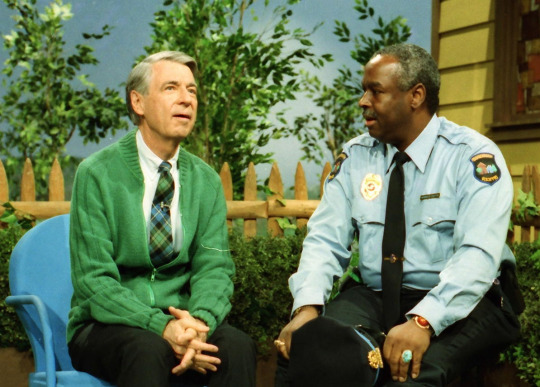
Mister Rogers with Officer Clemmons
1945 – François Clemmons is an American singer, actor, playwright and university lecturer. He is perhaps best known for his appearances as "Officer Clemmons" on the PBS television series Mister Rogers' Neighborhood from 1968 to 1993.
Clemmons was born in Birmingham, Alabama and raised in Youngstown, Ohio. When it was discovered that he had an excellent singing voice, he began performing locally at church functions. He became choir director of his church at the age of 10. His first songs were the spirituals of pre-Civil War America, passed down to him by his mother. He soon branched out across genres, singing with various community groups. For a while, he was the lead singer of a rock 'n' roll group called the Jokers.
Clemmons received a Bachelor of Music degree from Oberlin College, and a Master of Fine Arts from Carnegie Mellon University. He also received an honorary degree of Doctor of Arts from Middlebury College.For 25 years, Clemmons performed the role of Officer Clemmons, a friendly neighborhood policeman, in the "Neighborhood of Make-Believe" on the children's television show Mister Rogers' Neighborhood. In the neighborhood itself, Clemmons ran a singing and dance studio located in the building diagonally across the street from Mister Rogers' house. He was one of the first African Americans to have a recurring role on a kids' TV series, and his presentation – as both a beloved neighbor to Mister Rogers and as a respected authority figure – has been described as a ground-breaking message in race relations.
While attending Oberlin College, Clemmons realized that he was gay, but remained closeted, fearing disapproval from his religious family and the community. In 1968, Fred Rogers told Clemmons that while his sexuality did not matter to him personally, Clemmons could not be "out" and continue appearing on Mister Rogers' Neighborhood, because of the scandal that would arise. In the late 1960s, Rogers and others suggested that Clemmons get married as a way to deal with his sexual orientation, which he did. His marriage to wife Carol did not work out, and Clemmons divorced in 1974 so that he could live openly as a gay man. Rogers remained personally supportive of Clemmons, but required him to avoid any indication of his homosexuality – such as the earring he began to wear as a signifier – on the program.
Clemmons lives and works in Middlebury, Vermont, where he is the Emeritus Artist in Residence of Middlebury College. He is a member of Phi Mu Alpha Sinfonia, the national fraternity for men in music.


1957 – Alex Sanchez's unique background as a youth and family counselor and his experiences as an immigrant have helped make him an important voice in today's young adult glbtq literature canon. Born in Mexico City, Mexico, to parents of both Cuban and German descent, Sanchez immigrated with his family to Texas in 1962 at the age of five.
In a panel discussion at the 2003 National Council of Teachers of English convention, he explained, "Because of my light-skinned father and his German last name (not Sanchez), I learned I could pass as white. I could hide who I was, so that others would like and accept me."
At age 13, Sanchez realized that he was gay. He once again experienced feelings of being an outsider. But this time he felt there was no one he could talk to or relate to. He found no books in the library that described what he was going through, and none to tell him that what he felt was okay.
"So," he explained, "just as I had learned to hide that I was Mexican, I tried to hide that I was gay. I became depressed, quiet, invisible, trying to escape calling attention to myself."
After graduation, he worked as a family and youth counselor for ten years. During that time, he began to write the story that would eventually become Rainbow Boys (2001).
The book features three distinct and well-developed gay teens: an "out-and-proud" gay activist, a jock who starts the book with a girlfriend and family issues, and a low-key closeted teen who experiences prejudice due to his friendship with the more flamboyant character. The characters' stories are continued in Rainbow High (2003) and Rainbow Road (2005).
Considering that the average age most gay Americans now "come out" has dropped from age 21 (in 1979) to around 15 today (and as low as ten), the need for middle-grade glbtq fiction is obvious.
Alex Sanchez is one of today's most influential authors for the glbtq young adult market. His popularity and success is due to many factors, but most notably his believable characters, the timely and relevant storylines of his novels, and the broad appeal of the stories to both gay and straight teens.
Sanchez's books have helped countless gay teens accept themselves while at the same time helping straight readers understand and empathize with gay teens.


1984 – Aras Onur is a Turkish author, poet, and columnist.
Aras Onur was born in Ankara and is a graduate of TED Ankara College and University of Ankara. He started his literary career in the early 2000s. Openly gay, he has been often associated with local LGBT literature.
He is often identified as a socialist in the media, although his conservative tendencies are also often noted. Aras Onur was mastermind of "Kindle a Candle" protests, a wave of civil unrests in Turkey which began on 11 September 2015. The protesters were spurred on by a manifesto released by columnists of the national newspaper Karsi, in which the slogan "Kindle a Candle, Stand Out" was featured.
Onur had written Karsi editorial columns for two years as the acting-editor until he resigned from office in October 2016, following a ban on accessing the paper's website.


1984 – The US Dept. of Health and Human Services Secretary holds a press conference announcing that the virus that causes AIDS has been discovered: it’s HTLV-3, known today as HIV ('human immunodeficiency virus'). AIDS was originally named called GRID – 'gay related immune deficiency'.


2013 – The French Senate approves same-sex marriage.


14 notes
·
View notes
Text
Munday Lore Post: How many soldiers was Rio in charge of?

Think about an amalgamation of WW1 tactics, WW2 Weaponry, Vietnam War Era technology, and pre-Geneva Convention laws, and you basically have the Kanto-Johto Civil War in a nutshell.
#pokeask#pokemon ask blog#rio#aka it was a shitshow#time will tell if I show any of it#I probably will I’m just trying to figure out how much#munday lore post
8 notes
·
View notes
Note
I would love to hear your thoughts on MCU Tony stark. Irondad specifically. 😌🎤

NORMAL BEHAVIOR KING.
I do not have very sophisticated opinions. Tony Stark, as a character, is defined by his flaws. He fucks up, he does his best to make up for it, he helps people. That's what makes him a hero and a good person. He makes a mistake and he takes responsibility for it. He tries, fails, and tries again until he gets it right. Otherwise he'd be pretty unlikable.
Pulling Peter into the Germany thing in Civil War was a massive mistake and I think Tony understood that. I mean it was actual literal child trafficking. It was incredibly messed up. Tony behavior, but not at all appropriate for an adult to do.
It's interesting to go from there, because now this guy absolutely took responsibility for the one child in NYC who is physically incapable of being normal about anything, and he completely dodged that responsibility. Hoco seemed like the process of him realizing "holy shit I'm doing what my dad did", taking responsibility for Peter, and helping him out and giving him the support he should have had in the first place. In his really clunky and earnest but very weird and ineffective Tony way.
Like that was my impression? My impression was "he sucks, but he's trying". That's IM in a nutshell. It's interesting. It's physically incapable of being interesting if you strike through the "yeah but he's terrible at it" aspect of this. There is nothing left. Their relationship is built on a foundation of Tony Being Absolutely Terrible At This. But he's trying, because Tony always wants to be better even when he doesn't know how.
You have officially thrown me under the Irondad bus are you happy. Did you win, king.
#my asks#i am physically incapable of writing tony because whenver he is even mentioned#i can't stop myself from incessant jokes that are basically dunk after dunk after dunk#i don't mind him. you just have to write him as somebody everybody else fucking hates#local man most insufferable man alive#having the Most Unhatable Child chasing after him is funny though#“YEAH mr stark can do anything” in the background tony is crashing his car into a tree#its about the earnest but idiot optimism from both of them
25 notes
·
View notes
Note
Lemme start by saying, I don’t know if someone has said this before. Or if it’s been confirmed by the author/creator of Assassination Classroom (I would love to be informed if it was, though. I need AC content). It’s just something I noticed and thought was cool, so I decided to share:
Korosensei’s tie has a crescent moon design. To be more specific, a waxing crescent moon design.
It’s interesting because the academic year of the Assassination Classroom is widely speculated to be 2014-2015. Since Aguri and Korosensei met a year before, it’s reasonable to say that they met on March 13, 2013.
The moon phase on March 13, 2013 was a waxing crescent moon.
Aguri gifted Korosensei a necktie with a waxing crescent moon embroidered into it on the anniversary of their meeting. She put so much thought into that gift, to the point of incorporating the moon phase from the day they met. And I think that’s beautiful.
I have sad feels now.
Thoughts?
It's a neat idea! The manga was first serialised in Jump July 2012 though, so the speculation is probably a bit off. To me, it's most likely the series is set relatively contemporaneously. So you can take the original moon explosion as 2012 or 2013. There's one very specific part of the manga that does help date it, though.
Prewarning, this turned into niche ramblings.
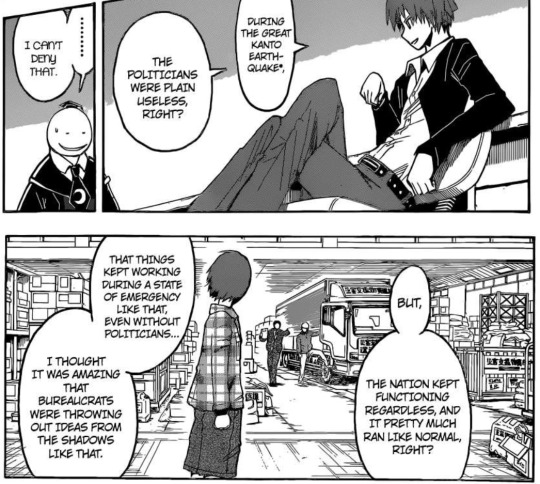
I do not currently have access to the Japanese version of this scene, but I disagree with the fan translation here. At their own admission, they interpreted him to be talking about a specific earthquake, where in reality he just says "the earthquake". I also went and checked this with the anime, and he does not give a specific event.
I mean, the Great Kanto Earthquake happened in 1923, which would make Karma some kind of time traveller if this was true. As someone who used to live in the same rough area Kunugigaoka is set, I promise you there are a lot of earthquakes. To the point you get used to them. Most certainly wouldn't be a 'state of emergency'. No. If you're saying The Earthquake, the most likely option is the 2011 Tohoku earthquake/tsunami, still by far Japan's most devastating natural disaster in recent times. Sort of like how we might say "the pandemic" and it's pretty obvious what we mean by it.
Two problems with this, though. One is that Karma in this panel looks relatively younger. The youngest Karma could realistically have been for this timescale is 12. We literally see him drawn at that age, and his appearance doesn't differ much in those panels (civil war) - though this could be put down to being before that specific arc. Second issue: the epicentre of the earthquake was quite far north of where Kunugigaoka is set, and Karma would have still been in junior high at this point. And we do see him physically observing... some kind of disaster relief. Considering the lack of destruction (and the fact that the earthquake destroyed a nuclear reactor and caused a massive exclusion zone in the general area), perhaps Karma is somewhere in Tokyo here observing the support measures.
The Japanese government were also specifically criticised for their response to the Fukushima nuclear disaster. It's too complicated to really go into here, but in a nutshell there were some Bad and Illogical Decisions (in Livi's opinion) taken. One highlight being very arbitrary choices on what houses were part of the exclusion zone, but I digress. Point is, this seems like what Karma's referring to by "the politicians were useless".
So anyway, my bet is that Aguri and Koro met in 2012, and the moon went bye bye in March 2013. I'm not going to check myself, but I'll believe you about the moon phase. I'll be honest, I doubt this is intentional, but it's a neat coincidence at least!
22 notes
·
View notes
Text
Problems of Niger in a nutshell:
🔶 Exploitation. Niger gets $10 for some uranium, which is sold in the market at $200.
🔶 Use of terrorists (by you-know-who) to cause chaos and keep people distracted and afraid

Terrorism is an effective tool to control countries and leaders.
▶️ Want to disrupt China’s Belt and Road Initiative in Pakistan? Done!
▶️ Did Duterte, the Philippines President, go to Russia? Turn on the terrorists and, boom, Duterte has to end his meeting with Putin and return home.
▶️ Syria doesn’t bow to Israel and the West? Send in the terrorists and create a civil war for a decade. That will set back the country by decades.
▶️ Even the attacks inside Europe fit the pattern. Gladio 2.0.
This has been going on for decades.
Of course, the people who switch on the terrorists also occasionally kill those expendable pawns. Helps with propaganda.

22 notes
·
View notes
Text

⬆️ When you fooled of yourself into believing that you were casting a vote for decency and unity, but really cast a vote for the following. 
1. Open borders resulting in massive amounts of fentanyl coming into the US, resulting in hundreds of thousands of deaths, perpetuation of human trafficking, involving hundreds of thousands of innocent children, men and women being sold into sex slavery, the murder of US citizens by illegals, rampant crime, etc.
2. In a nutshell, the normalization of pedophilia, including but not limited to, the sexualization of minors in schools through twisted agendas being pushed on them, drag queen story hours, drag performances with minors in attendance and sometimes performing, hundreds of twisted individuals with sick fetishes being installed in our schools to push their agendas and brainwash minors, child mutilation and sterilization, widespread gender confusion, etc.
3. Massive inflation in numerous areas.
4. The looming threat of World War III.
5. The deliberate perpetuation of racial division/wars, and civil unrest.
6. Multiple mass shootings carried out by trans/non-binary individuals, in order to kill innocents and push unconstitutional gun control laws.
7. The perpetuation of the America last agenda, including 37,000+ veterans living out on the street, while illegals are given loaded credit cards, lodging, food, etc.
8. Extreme censorship, and the shutting down of any information that goes against the desired narrative.
9. Persecution, prosecution, doxxing, harassment, threatening, swatting, physically harming and or incarceration of people, including but not limited to, Catholics, Christians, Jews, parents exercising their right to protest boys being allowed in girl’s restrooms, peaceful protestors, members of the dissenting political party, etc.
10.. The stripping away of parental rights in regards to their minors, taking the children from the parents If they refuse to address the child by their preferred pronouns, or allow them to mutilate and sterilize themselves, etc.
To me, all of this begs the question, what if we answer to God for our vote one day? 😳
Please feel free to add to the list as I’m sure I’ve forgotten things. It’s been a long 3+ years!!!
Stolen elections have horrendous consequences.
8 notes
·
View notes
Note
how did skyrim's civil war go with tal?
The Big Q!
In a nutshell, largely as it plays out in game. Legion and Stormcloaks vying for getting the dragonborn on their side for the tactical and symbolic advantage. The outcome is an independent Skyrim no longer governed by the Empire, but Tal never forgets the looming Thalmor threat.
However I do stray from the canon at a few points and in fairly large ways. 👑

The Jagged Crown- Tal initially gets caught up with the Imperials to retrieve the symbol of Nord kingship. While in Solitude, he sees the sway that Thalmor advisors have over the Queen and the General. But the Empire is what he knows, he was born in Cyrodiil, but upon seeing the first clashes against the Stormcloak soldiers and really seeing nord warriors in action, he begins to think again. Instead of handing over the crown, however, he hides it. He buries it in the garden of his house. Neither faction gets the crown.
The Battle of Whiterun- By this point Tal is known to be dragonborn. He’s been invited to Windhelm to speak with Ulfric, he’s passed messages between the Jarls, the battle is inevitable. He’s in Whiterun when the Stormcloaks mass at the gates. He defends the city, protects civilians, kills Stormcloaks, and hates every second of it. He begs and convinces Balgruuf to surrender and end the bloodshed but on orders, the Imperial garrison won’t yield. Tal changes sides. The Stormcloaks take Whiterun.
Liberation of Skyrim- while Stormcloaks wage war against the Imperial forts and garrisons, Tal is forced to spend his time- a period of years in my headcanon- between the worsening dragon crisis and leading Stormcloak warriors against Thalmor targets. He fights in relatively few all put battles, preferring to target patrols, hit Thalmor outposts like ghosts in the night, and cut off Imperial supply lines.
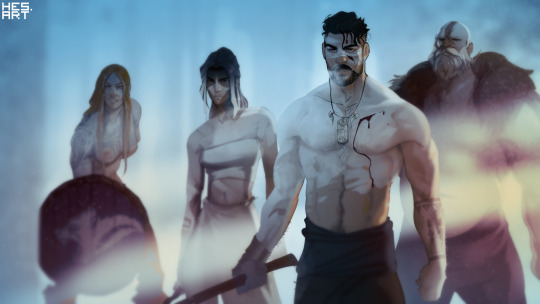
Relationship with Ulfric- the Jarl of Windhelm is keen to put on a good show for Tal, who’s not very worldly and unsure of how his power can be put to use when he first meets Ulfric. Over the years of the war and crisis, he learns Ulfric’s history, he deeds, his motives. Tal believes in the Stormcloak cause, that the Empire has choked the soul out of his country and they can stand strong, but Ulfric’s seemingly wilful overlooking of the violent nationalism amongst his soldiers, rejection of diversity of who can live in and contribute to Skyrim, and treatment of the Reach never escape Tal’s notice. Ulfric trusts Tal far more than Tal trusts Ulfric.
The Battle for Solitude- Tal joins the Stormcloaks for the final assault on the capital. He fears the outcomes if he’s not. When the city is taken, Queen Elisif is captured the moment comes to declare Skyrim free, Tal stops Ulfric from reaching the throne. In his eyes the blood of all casualties of the war are on Ulfric’s hands. He’s a murderer, a power-grabbing populist who let his Stormcloaks tear the country apart, and if Skyrim is to have a future, Tal knows it can’t be made in Ulfric’s image.

They fight a holmgang- a duel to the death, because Ulfric is furious and refuses anything less- in the ruined streets of the city. Ulfric uses the thu’um, but Tal staunchly does not. He defeats Ulfric as himself, not with the dragonborn’s power.
General Tullius is allowed to live. Tal’s parting words to him before they send the general back to the Imperial City are that Skyrim will never be ruled again— but when the next war comes, and it surely will, all enemies of the Thalmor must stand together. Tal promises an alliance of equals and Tullius has no choice but to accept.
With Ulfric dead and Elisif deposed, the Jarls of Skyrim look to Ysmir, the Dragon of the North, Tal Stormshield. With no other choices and work still to do, Talos is named High King, and takes the throne.
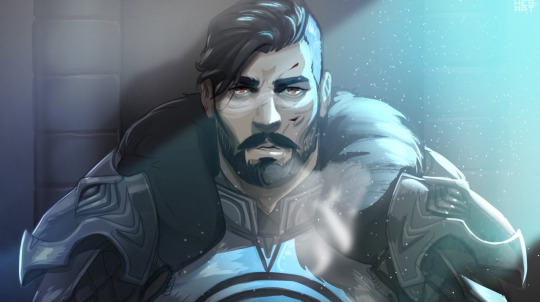
He refuses a coronation, the Jagged Crown stays buried in the ground, and he spends the few years until Dawnguard and Dragonborn with Eivør and Kato at his side to bring Skyrim back together, repair ties with the Reach, and break down the insular fears that the country has built up. It’s wretched, bitter work, but he does it because no one else will.
All this concludes before the end of the dragon crisis. He began as a little blacksmith whose only ambition was to build a home, and he steps into Sovngarde to defeat Alduin as high king and leader of a nation.
#**Tal#personal headcanon#skyrim trash tag#Anyway this 10-season tv show constantly plays out in my head scene by scene i love thinking about it#ask tag
140 notes
·
View notes
Note
I know morally wise Desmond would never be a Templar but what if it was a more reluctant association? Like if one of them helped him out or a yew branch where he grew up as their son? Especially if it was a more moderate Templar.
Different variations of this idea had been flying over my head but there is this one:
A rough overview of how Desmond would react to being associated with the Templars (includes Italian Rite Civil War, Desmond becoming Haytham's Jiminy Cricket and... honestly Starrick looking reasonable when the Frye twins' actions are seen from the outside)
In a nutshell: Desmond has a high chance of 'allying' with Haytham due to his desire to give Ratonhnhaké:ton a better life, Monsieur de la Serre's moderate party in Unity (they did have a 'secret' alliance with the Parisian Brotherhood) and Starrick (mainly because the Frye twins did fuck up London and that looks super bad).
As for growing up connected to the Templars as some kind of Yew Branch setup, there's this:
One of the Unity AU Ideas was Desmond being reborn as Élise's twin brother and this one does end with him taking over the Templars (warning: this does go Arno x Desmond later on with Desmond and Élise doing the whole twin switcheroo... repeatedly)
#there's another one where desmond gets reborn as one of king richard's illegitimate brother#but that's less desmond becoming a templar and more of desmond being a member of the royal court#it is soooo easy to paint the frye twins as the bad guys#goddamn#desmond as a templar#technically?#assassin's creed#desmond miles#ask and answer#teecup writes/has a plot#fic idea: assassin's creed
29 notes
·
View notes
Text
"VANITY FAIR" (2018) Review
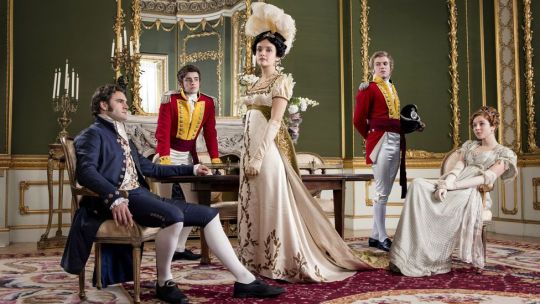
“VANITY FAIR” (2018) Review
When I had first heard that the ITV channel and Amazon Studios had plans to adapt William Makepeace Thackeray’s 1848 novel, “Vanity Fair”, I must admit that I felt no interest in watching the miniseries. After all, I had already seen four other adaptations, including the BBC’s 1987 production. And I regard the latter as the best version of Thackeray’s novel I had ever seen.
In the end, my curiosity got the best of me and I decided to watch the seven-part miniseries. In a nutshell, "VANITY FAIR" followed the experiences of Rebecca "Becky" Sharp, the social climbing daughter of an English not-so-successful painter and a French dancer in late Georgian England during and after the Napoleonic Wars. The production also told the story of Becky's school friend and daughter of a wealthy merchant, Amelia Sedley. The story begins with both young women leaving Miss Pinkerton’s Academy for Young Ladies. Becky managed to procure a position as governess to Sir Pitt Crawley, a slightly crude yet friendly baronet. Before leaving for her new position, Becky visits Amelia's family. She tries to seduce Jos Sedley, Amelia's wealthy brother and East India Company civil servant. Unfortunately George Osborne, a friend of Jos and son of another wealthy merchant, puts a stop to the budding romance.
While working for the Crawleys, Becky meets and falls in love with Sir Pitt’s younger son, Captain Rawdon Crawley. When Sir Pitt proposes marriage to Becky, she shocks the family with news of her secret marriage to Rawdon. The couple becomes ostracized and ends up living in London on Rawdon’s military pay and gambling winnings. They also become reacquainted with Amelia Sedley, who has her own problems. When her father loses his fortune, George's own father insists that he dump Amelia and marry a Jamaican heiress. George refuses to do so and thanks to his friend William Dobbin's urging, marries Amelia. Mr. Osborne ends up disinheriting George. However, the romantic lives of Becky and Amelia take a backseat when history overtakes them and their husbands with the return of Napoleon Bonaparte.
I wish I could say that the 2018 miniseries was the best adaptation of Thackery's novel I had seen. But it is not. The production had its . . . flaws. One, I disliked its use of the song "All Along the Watchtower" in each episode's opening credits and other rock and pop tunes during the episodes' closing credits. They felt so out of place in the miniseries' production. Yes, I realize that a growing number of period dramas have doing the same. And quite frankly, I detest it. This scenario barely worked in the 2006 movie, "MARIE ANTOINETTE". Now, this use of pop tunes in period dramas strike me as awkward, ham-fisted, unoriginal and lazy.
I also noticed that producer and screenwriter Gwyneth Hughes threw out the younger Pitt Crawley character (Becky's brother-in-law), kept the Bute Crawley character and transformed him from Becky Sharp's weak and unlikable uncle-in-law into her brother-in-law. Hughes did the same with the Lady Jane Crawley and Martha Crawley characters. She tossed aside the Lady Jane character and transformed Martha from Becky's aunt-in-law to sister-in-law. Frankly, I did not care for this. I just could not see characters like Bute and Martha suddenly become sympathetic guardians for Becky and Rawdon's son in the end. It just did not work for me. I have one last problem with "VANITY FAIR", but I will get to it later.
I may not regard "VANITY FAIR" as the best adaptation of Thackery's novel, I cannot deny that it is first-rate. Gwyneth Hughes and director James Strong did an excellent job of bringing the 1848 novel to life on the television screen. Because this adaptation was conveyed in seven episodes, both Hughes and Strong were given the opportunity retell Thackery's saga without taking too many shortcuts. The miniseries replayed Becky Sharp's experiences with the Sedley family, George Osbourne, and the Crawley family in great detail. I was especially impressed by the miniseries' recount of Becky and Amelia's experiences during the Waterloo campaign - which is the story's true high point, as far as I am concerned. Also, this adaptation had conveyed George's experiences during Waterloo with more detail than any other adaptation I have seen.
Aside from the Waterloo sequence, there were other scenes that greatly impressed me. I really enjoyed those scenes that featured the famous Duchess of Richmond's ball in the fourth episode, "In Which Becky Joins Her Regiment"; Becky's attempts to woo Jos Sedley in the first episode, "Miss Sharp In The Presence Of The Enemy"; the revelation of Becky's marriage to Rawdon Crawley in "A Quarrel About An Heiress"; and her revelation to Amelia about the truth regarding George in the final episode, "Endings and Beginnings". There were people who were put off that the series did not end exactly how the novel did - namely the death of Jos, with whom Becky had hooked up in the end. I have to be honest . . . that did not bother me. However, I was amused that Becky's last line in the miniseries seemed to hint that Jos' death might be a possibility in the near future.
The production values for "VANITY FAIR" struck me as quite beautiful. I thought Anna Pritchard's production designs did an excellent job in re-creating both London, the English countryside, Belgium, Germany, India and West Africa between the Regency era and the early 1830s. Not only did I find the miniseries' production values beautiful, but also Ed Rutherford's cinematography. His images struck me as not only beautiful, but sharp and colorful. I would not say that Lucinda Wright and Suzie Harman's costume designs blew my mind. But I cannot deny that I found them rather attractive and serviceable for the narrative's setting.
One of the production's real virtues proved to be a very talented cast. "VANITY FAIR" featured some solid performances from it supporting players. Well . . . I would say more than solid. I found the performances of Robert Pugh, Peter Wight, Suranne Jones, Claire Skinner, Mathew Baynton, Sian Clifford, Monica Dolan, and Elizabeth Berrington to be more than solid. In fact, I would say they gave excellent performances. But they were not alone.
Michael Palin, whom I have not seen in a movie or television production in years, gave an amusing narration in each episode as the story's author William Makepeace Thackeray. Ellie Kendrick gave a very poignant performance as Jane Osborne, who seemed to be caught between her loyalty to her bitter father and her long-suffering sister-in-law. Simon Beale Russell gave a superb, yet ambiguous portrayal of the warm and indulgent John Sedley, who also had a habit of infantilizing his family. Frances de la Tour was deliciously hilarious and entertaining as Becky Sharp's aunt-in-law and benefactress Lady Matilda Crawley. I could also say the same about Martin Clunes, who gave a very funny performance as the crude, yet lively Sir Pitt Crawley. One last funny performance came from David Fynn, who gave an excellent portrayal of the vain, yet clumsy civil servant, Jos Sedley. Anthony Head gave a skillful performance as the cynical and debauched Lord Styne. I thought Charlie Rowe was superb as the self-involved and arrogant George Osborne. Rowe, whom I recalled as a child actor, practically oozed charm, arrogance and a false sense of superiority in his performance as the shallow George.
I have only seen Johnny Flynn in two roles - including the role of William Dobbin in this production. After seeing "VANITY FAIR", it seemed that the William Dobbin role seemed tailored fit for him. He gave an excellent performance as the stalwart Army officer who endured years of unrequited love toward Amelia Sedley. Tom Bateman was equally excellent as the charming, yet slightly dense Rawdon Crawley. At first, I thought Bateman would portray Rawdon as this dashing, yet self-confident Army officer. But thanks to his performance, the actor gradually revealed that underneath all that glamour and dash was a man who was not as intelligent as he originally seemed to be. Amelia Sedley has never been a favorite character of mine. Her intense worship of the shallow George has always struck me as irritating. Thanks to Claudia Jessie's excellent performance, I not only saw Amelia as irritating as usual, but also sympathetic for once.
Television critics had lavished a great deal of praise upon Olivia Cooke as the sharp-witted and manipulative Becky Sharp. In fact, many have labeled her performance as one of the best versions of that character. And honestly? I have to agree. Cooke was more than superb . . . she was triumphant as the cynical governess who used her charms and wit in an attempt to climb the social ladder of late Georgian Britain. I would not claim that Cooke was the best on-screen Becky I have seen, but she was certainly one of the better ones. I have only one minor complaint - I found her portrayal of Becky as a poor parent to her only son rather strident. Becky has always struck me as a cold mother to Rawdon Junior. But instead of cold, Cooke's Becky seemed to scream in anger every time she was near the boy. I found this heavy-handed and I suspect the real perpetrator behind this was either screenwriter Gwyneth Hughes or director James Strong.
I have a few complaints about "VANITY FAIR". I will not deny it. But I also cannot deny that despite its few flaws, I thought it was an excellent adaptation of William Makepeace Thackeray's novel. Actually, I believe it is one of the better adaptations. "VANITY FAIR" is also one of the best period dramas I have seen from British television in a LONG TIME. And I mean a long time. Most period dramas I have seen in the past decade were either mediocre or somewhere between mediocre and excellent. "VANITY FAIR" is one of the first that has led me to really take notice in years. And I have to credit Gwyneth Hughes' writing, James Strong's direction and especially the superb performances from a first-rate cast led by Olivia Cooke. It would be nice to see more period dramas of this quality in the near future.
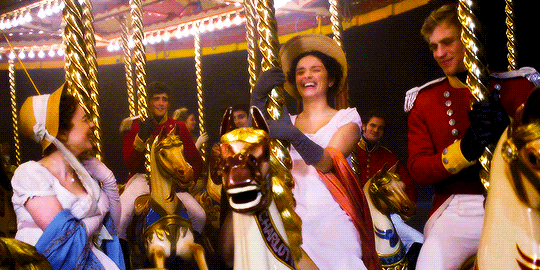
#vanity fair#william makepeace thackeray#michael palin#olivia cooke#tom bateman#johnny flynn#claudia jessie#james strong#anthony stewart head#charlie rowe#ellie kendrick#napoleonic wars#period drama#period dramas#costume drama#suranne jones#history#frances de la tour#simon beale russell#martin clunes#elizabeth barrington#monica dolan#david flynn#claire skinner#sian clifford#robert pugh#martin baynton#richie campbell
7 notes
·
View notes
Note
I'm writing something of a case fic in which Matt defends an Enhanced client in a post 'Civil War' world. I need to do some studying up on US, NY State, and international law, particularly laws and regs pertaining to human rights, defamation/slander, privacy, malpractice, medical ethics, labor laws, and protected classes. I also want to study up on the concept of precedent: how and when it applies, how it can/can't affect future cases, etc. Are there any resources you'd recommend, or ones I should avoid? (I'm very much a layman and really only need enough for verisimilitude over technical accuracy - I know my lane 😅).
Thankee!
Hi I am absolutely mortified at how long this has been sitting in my inbox. Um.
I will take every opportunity recommend the "in a nutshell" books, so here, for example, is one on international law (also covering human rights, treaties, etc.). Here's another "nutshell" book for labor law and the "nutshell" book on constitutional law also talks about protected classes.
These books are dense little guys that will give you more than you need, but I'm a nerd and I adore them.
Findlaw.com is also one of my favorite websites. Here, for example, is their breakdown on defamation/slander.
You can also never go wrong with Cornell's Legal Information Institute, although be warned: it's technical. But here's their explanation of precedent. (In general, though, precedent just means that cases from certain courts are "binding" on other courts. So like, any case from the U.S. Supreme Court is binding on literally every other case. But a case from New York is not going to be binding on, like, a case from Texas, and vice versa.)
Good luck with your story!
11 notes
·
View notes
Note
Yeah, another thing I disliked about CACW was that the accords conflict made no sense. As far as what was shown on screen, the MCU accords just said they can’t go into countries without permission and engage in combat. That is already illegal for normal people. Steve was told if he didn’t sign he couldn’t be Captain America (at that point the Avengers seemed to be a vigilante group that answered to no one?). No mention of penalties for powered civilians.
That's my big gripe with the movie, tbh, and a lot of the fans - the fans use the comics framework for Registration, where it was super sketchy and there was like. on-screen human experimentation by the US government on those who registered. CACW was basically just the UN saying "please, America-based superhumans, stop killing people in sovereign nations and refusing to respect borders" and Steve took umbrage with that?? I'm oversimplifying, but not by much. And despite the shitty reasoning and writing, fans as a whole jump to apply comics Registration to the movie, even if they're not the same thing, which is maddening.
Comics Civil War was a little contrived, but at least there was much stronger reasoning on both sides. CACW just felt....flat and full of holes. And then they shoehorned a forced and vaguely creepy romance in there. Basically: the MCU in a nutshell.
54 notes
·
View notes